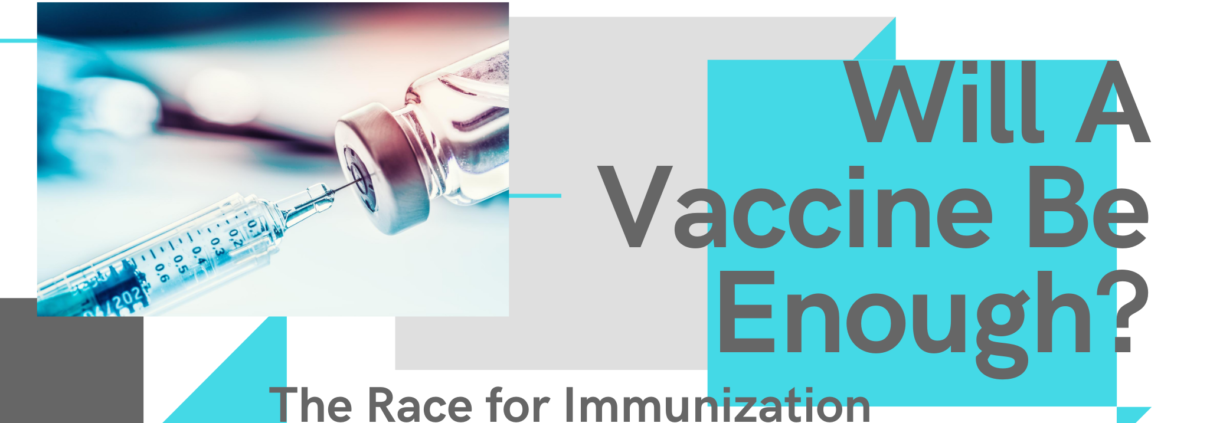Will A Vaccine Be Enough?
There are currently over 165 vaccines in development all over the world and 27 have moved on to human trials. With a lack of national consensus of pretty much any measure that could be taken to curb the virus–lock downs, mask mandates, comprehensive testing and contact tracing–and no possibility of natural herd immunity, public health experts, politicians and everyday people are pinning their hopes on defeating COVID-19 with a vaccine, even if it may not be available until sometime next year.
Some vaccines have shown promise, giving researchers hope that a solution will soon be at hand. A new Phase I/II trial from scientists at the Oxford Vaccine Group and the Oxford University’s Jenner Institute show a strong immune response to the vaccine they are working on and no early safety concerns. Some vaccines in the works are called mRNA vaccines, which bypass using any pathogens from COVID-19 at all in the production of the vaccine and instead isolate a “spike protein” that allows the virus to infect our cells rather than the virus itself.
However, there are still other obstacles to getting a vaccine to the masses besides the vaccine development itself. Vaccinating the majority of the US population is a herculean feat, one that requires extensive coordination and a large scale manufacturing and distribution infrastructure. On top of that, if not enough people opt to get vaccinated, we still won’t reach herd immunity.
One of the biggest obstacles to quick implementation of a safe and working vaccine are the large numbers of people that don’t trust it enough to take it. And it’s not just anti vaxxers. People who generally trust science and medical research are uneasy at the rapid development of the vaccines, worried that we are skipping key measures and regulations to come up with a desperately needed solution. Dr. Fauci predicts that the first vaccine we get is likely to have an efficacy rate of around 40%. Eventually, we will hopefully have a vaccine with a 75% efficacy rate but the first one to pass the trials and be made available to the public is unlikely to be that successful. But let’s say for argument’s sake that we get a vaccine with a 75% efficacy rate. If 1/3 of the population declines to get vaccinated with a vaccine that is 75% effective, it simply won’t be enough.
What can we do to ensure that enough people take the vaccine to turn the tide against COVID-19? A nationwide campaign and public health initiative to make sure people are educated on the subject will be necessary. That and hoping for a vaccine with maximum efficacy. While America has stayed divided on masks, the severity of COVID-19, and how to address the ensuing calamity, perhaps we can finally come together on the issue of a COVID vaccine.
In the meantime, wear a mask, wash your hands, and social distance.
Yours in Strength,
The Take Back Control Team




Leave a Reply
Want to join the discussion?Feel free to contribute!